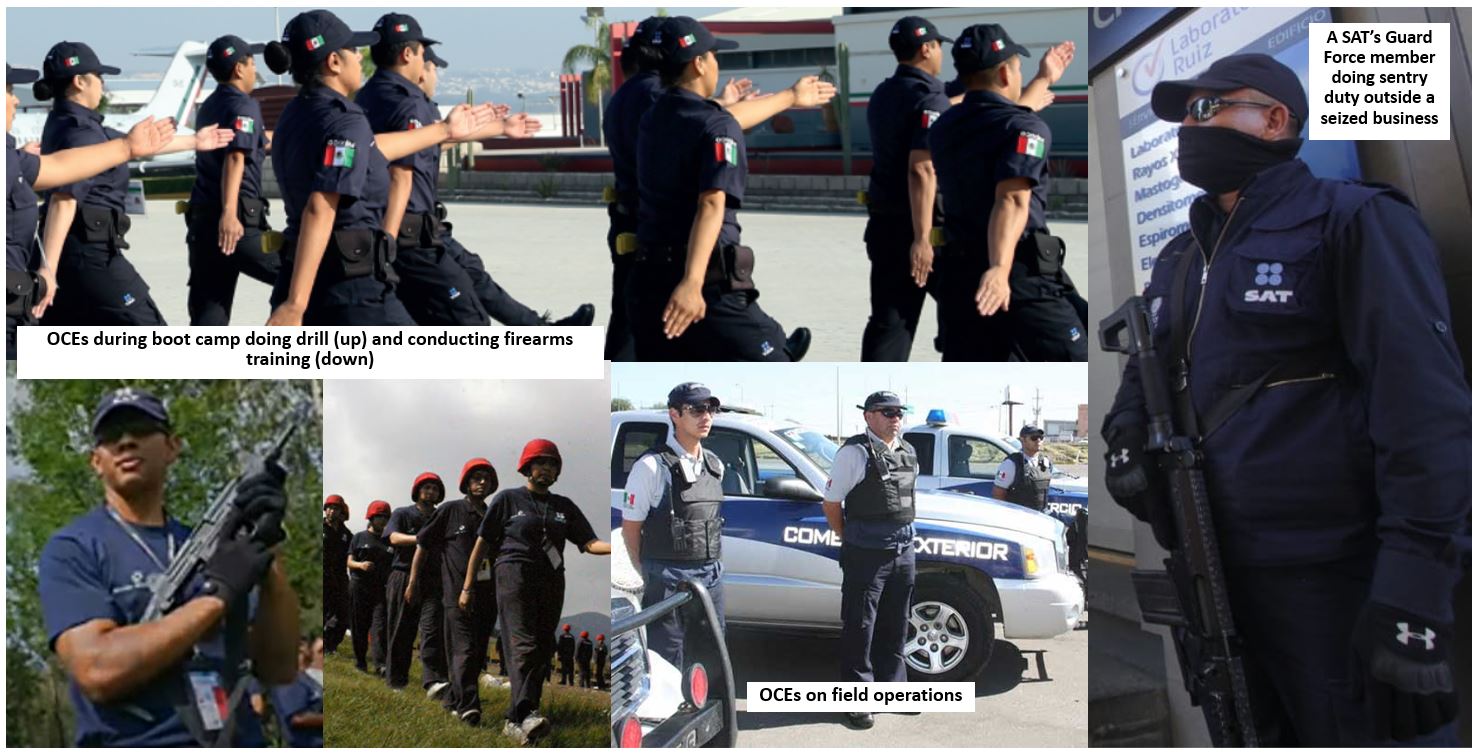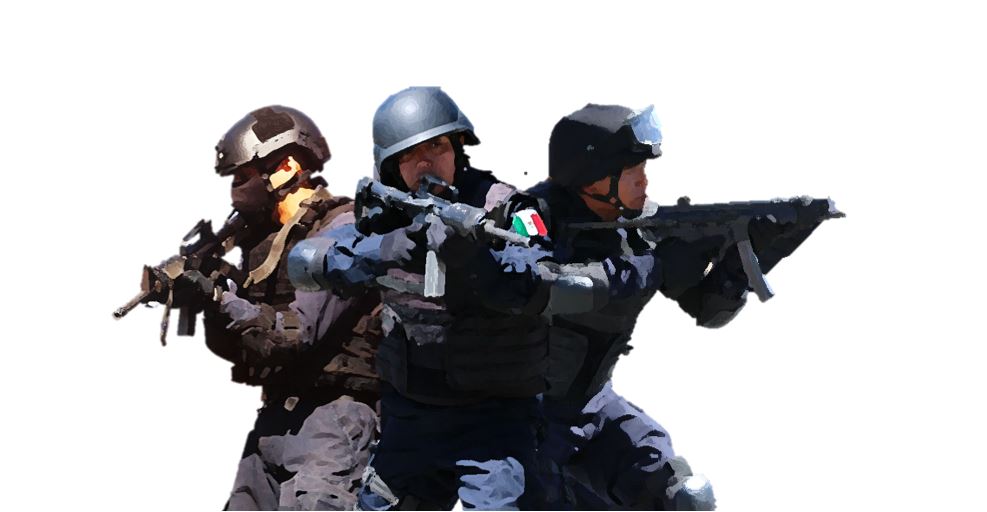The Mexican Tax Administration Service (SAT) Security and Police Force
October 13, 2023
by Alexei Zarembski

Few people know that the Mexican Tax Administration Service (SAT) is composed of several investigative and armed bodies that help them carry out their duties all around the country
While most tax and revenue agencies in the world do criminal investigations, tax fraud, and audits, they rely on federal police forces to conduct arrests and secure assets, Mexico does it differently.
The Mexican Tax Administration Service (SAT) counts therefore with two enforcement forces. The first is the Facility Security Guards and then the infamous auditors and investigators. The SAT also has customs agents and foreign trade officials (Oficiales de Comercio Exterior) but these are usually always supported on-site by the National Guard, local police, or armed forces.
Guard Force
The SAT's Facility Security Guards and Facility Security Deputy Administrators, as they are officially called, are multifunctional federal security elements that coordinate, supervise, and provide security to SAT installations, officials, and even operations.
They are almost entirely a preventive and corrective security force that relies heavily on other federal institutions for reactive forces. Most guards can be seen performing access control, CCTV monitoring, monitoring of logs, doing perimeter patrols, verifying the correct functioning of the infrastructure of the security, close protection, and sometimes safeguarding buildings and businesses that have been closed or seized after being audited.
Recruits can in theory be anyone older than 18 and are not required to have military experience like in PEMEX. Once pre-selected, recruits attend one month of training in their training grounds located in Mexico City.
The training program is composed of 4 modules:
- Module 1, Related to the Federal Firearms and Explosives Law and its Regulations
- Module 2, Related to Discipline, as part of daily activities, drill, physical conditioning, self-defense, crisis management activities, psychological support, and security of strategic facilities, among others, are carried out
- Module 3. Related to the National Civil Protection System, the types of risks that affect the population and how to be prepared to face emergencies that may arise, as well as provide first aid and care for injured people.
- Module 4. Related to Regulations such as the basic principles of Human Rights, National Law on the Use of Force, Institutional Values, and operation development, among others.
The guard force is equipped with handcuffs, modern FN FAL rifles, and 9mm side arms, and while they can't technically arrest someone and present them to the public ministry they can detain them.
Interestingly enough, most SAT sites rely heavily on private security guards and only use the Guard Force for special sites and occasions.
Investigation Branch
Very little is public regarding the SAT's auditors and investigators, and due to the fact that vacancies are rarely public, it is believed with little confidence that most members are picked from within the organization.
In the US, IRS criminal investigators are armed and even go on undercover operations. SAT investigators on the other hand are not armed and mainly due old fashion audits that look into alleged violations of tax codes, money laundering, etc.
Once they conclude an investigation they call for local or federal police forces to carry out arrests and then (in some rare cases) dispatch the SAT's Guard Force to secure seized buildings or businesses.
Foreign Trade Officials
The Foreign Trade Oficiales (Oficiales de Comercio Exterior, OCEs) are commonly known as customs agents and are practically unknown to the public since they are often confused with actual customs agents (which belong to a different entity in Mexico).
The position is highly multifunctional and strategic and is not always in points of entry but rather all around the nation. They also do field operations and therefore some carry body armor and a firearm. Via OSINT they have been seen carrying 9mm side arms and UZIs.
OCEs are in charge of reviewing the luggage and documentation of citizens and means of transport coming from abroad by land, air, and sea, verifying compliance with customs provisions and the proper application of the regulations regarding foreign trade. As a secondary duty, they also act as security for customs facilities and do patrols and physical inspections. Unlike the SAT's Guard Force, when they detect prohibited or undeclared goods they must carry out legal procedures such as presenting the offenders to the public ministry.
The entry requirements are very similar to those of the guard force but unlike a 4-week course, OCE recruits must pass an 11-week boot camp called the Training Program on the subject of Foreign Trade. The course is given at the Tax and Foreign Trade Training Center, Chichimequillas campus in the state of Querétaro, and in different Customs offices in the country. The course is composed of ten modules related to foreign trade, combining the theoretical with the practical with the aim of preparing recruits on:
- The framework of legal and customs procedures
- Military drill practice
- Use and handling of weapons
- Self-defense and protection techniques
- Physical conditioning
During the early years of presiden't Calderon mandate (2006 - 2012) Mexico had something resembling a Customs and Border Police, called the Inspeccion Fiscal Aduanera, IFA. The IFA was then abolished and the Federal Police took over some of their responsibilities, alongside the SAT's OCEs. The reason the OCE's are issued UZIs is because those were the IFA's standard-issued weapons.

Conclusion
The SAT's security and police forces seem to be a new invention (although they already exist they were not defined per se) that is growing steadily which likely indicates that Mexico is trying to abolish smaller security organizations in favor of empowering their more long-lasting ones and making them operationally independent from other federal security forces. This is done likely for the organization to remain independent and be less prone to corruption, in likely theory.
Copyright by Vigiles Analytica. All rights reserved. ©2026
